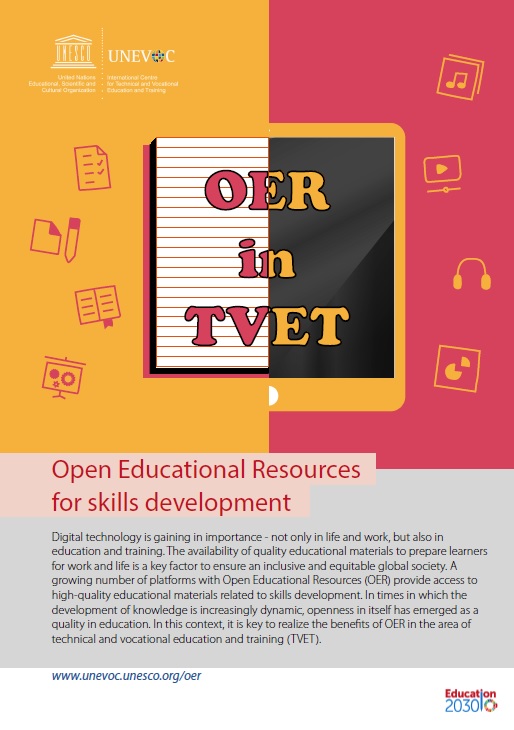
The UNESCO-UNEVOC International Centre: Who We Are | What We Do | Working With Us | Get in Touch
The UNEVOC Network: Learn About the Network | UNEVOC Network Directory
For Members: UNEVOC Centre Dashboard
Thematic Areas: Inclusion and Youth | Digital Transformation | Private Sector Engagement | SDGs and Greening TVET
Our Key Programmes & Projects: BILT: Bridging Innovation and Learning in TVET | Building TVET resilience | TVET Leadership Programme | WYSD: World Youth Skills Day
Past Activities: COVID-19 response | i-hubs project | TVET Global Forums | Virtual Conferences | YEM Knowledge Portal
Our Services & Resources: Publications | TVET Forum | TVET Country Profiles | TVETipedia Glossary | Innovative and Promising Practices | Toolkits for TVET Providers | Entrepreneurial Learning Guide
Events: Major TVET Events | UNEVOC Network News

| Author/s: | Max Ehlers, Robert Schuwer, Ben Janssen |
| Publisher/s: | UNESCO-UNEVOC |
| Published: | 2018 in Germany |
| Licence: | CC BY |
Digital technology is gaining in importance - not only in life and work, but also in education and training. The availability of quality educational materials to prepare learners for work and life is a key factor to ensure an inclusive and equitable global society. A growing number of platforms with Open Educational Resources (OER) provide access to high-quality educational materials related to skills development. In times in which the development of knowledge is increasingly dynamic, openness in itself has emerged as a quality in education. In this context, it is key to realize the benefits of OER in the area of technical and vocational education and training (TVET).